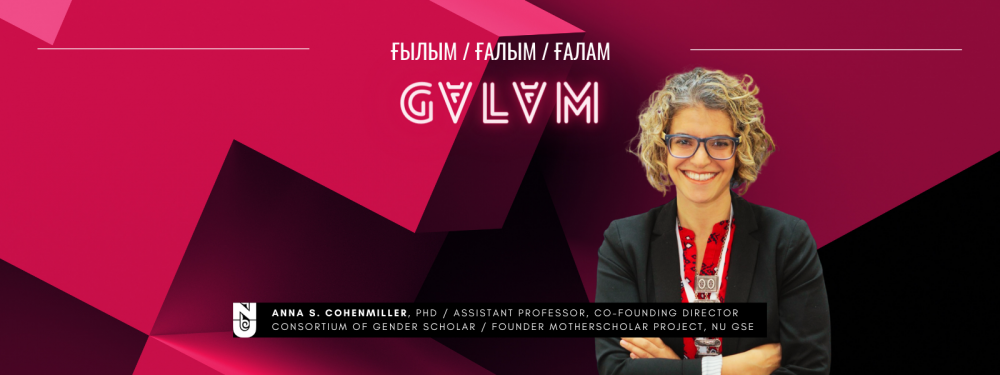Galym-Galam: Anna CohenMiller, NU GSE Assistant Professor
Our next Galym-Galam rubric guest is Anna CohenMiller, NU GSE Assistant Professor. Professor CohenMiller is an experienced educator, who is now doing her research on equity and inclusion in higher education. The scholar joined NU seven years ago thinking that it would be a great opportunity to make meaningful contributions. Today Professor Anna CohenMiller uses innovative research methods to highlight the voices of ‘those historically underrepresented, marginalized or colonized’. Her latest research focuses on challenges ‘motherscholars’ are now facing, being forced to work from home and take care of their children at the same time.
Can you please tell us about your educational and professional background?
My background is interdisciplinary, focusing on socially just research methods addressing diverse cultures. I have taught in the U.S. from preschool through higher education, and am going on my seventh year in the Graduate School of Education at NU. In my first year at GSE, I worked across disciplines to initiate with Jenifer Lewis (Graduate School of Business), The Consortium of Gender Scholars (www.gen-con.org).
Can you please tell us about your research interests, including the most recent one – the research project about equity and inclusion for mothers in academia during COVID-19.
My research broadly focuses on equity and inclusion in higher education. To reach that aim, I emphasize the use of innovative research methods to highlight the voices of those historically underrepresented, marginalized or colonized. For example, I recently spoke on Equity and Inclusion in Qualitative Research as the keynote for the 20th Annual Thinking Qualitatively virtual conference. In that talk, I drew from my in-press book, Questions in Qualitative Social Justice Research in Multicultural Contexts (with Nettie Boivin), which will be out in October of this year through Routledge. An example of a current research project utilizing these lenses of equity and inclusion is a British Council grant that I’m the country lead for – Gender on the Higher Education Learning Agenda Internationally: Co-Constructing Equitable Futures, a comparative study examining Kazakhstan, the UK, Morocco, Nigeria, and India.
For the recently completed study about mothers in academia, I led the project with Zhanna Izekenova (PhD Candidate, GSE) to understand the reality of motherscholars suddenly being forced to work from home while also guiding their children’s online learning during COVID-19. The study integrates cutting-edge qualitative research practices, photovoice adapted for online use to demonstrate these experiences, identifying structural issues and obstacles faced. The website offers highlights to the study in an accessible format for general and academic audiences.
Do your research findings have practical implementation potential, or is it a merely fundamental study?
The study offers specific insights for institutions of higher education to become aware of the inequitable situation in which those who are mothering (caretaking) are experiencing; to recognize the institutional barriers that could further exacerbate inequities; and to encourage each institution commit to identifying steps they can take to facilitate a transition out of COVID-19 for those particularly disadvantaged.


